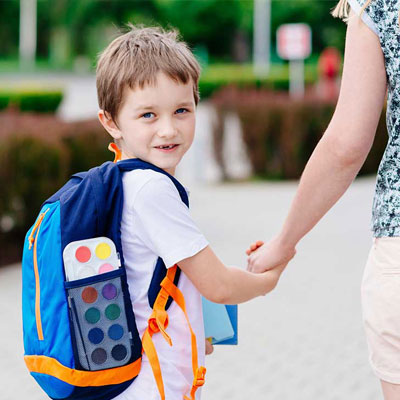How to cope when sending your little one off to school for the first time

Whether it’s kindergarten or pre-K, the first day of school for a young child is a tremendous change. And what’s more, how you cope with this frequently stressful moment can have a powerful impact on how your child responds to new events that she’ll face throughout her life. Below are some tips to help you and your child cope with — and even enjoy — that first day of school.
Pick out supplies and new clothes with your child, and label everything.
In the weeks before, include your child in the preparation process for the big day, as feasible. In addition, this article stresses the importance of labeling all items beforehand. Not only will you want to avoid replacing those items, but you’ll want your child to have positive memories of preparing for the big event when she looks at these objects throughout her first day.
Prepare the night before.
Make a list of all tasks that can be performed ahead of time. Set out your child’s clothes, and have her pick out her favorite outfit. Establish the prep period as an engaging time that both you and your little one will look forward to each night.
When it comes to lunch and/or snacks, stick with the familiar.
In fact, the above article even recommends that you practice eating that first school lunch with your child to make sure that there are no surprises. For example, it recommends that you avoid new or unidentifiable items so that your child doesn’t have to struggle with awkward packaging, or deal with new foods, flavors, smells and textures on her first day of school.
Avoid any hassle and rush on the big morning.
Both you and your little one will benefit tremendously from a fuss-free morning routine. Anticipate the tasks you need to complete (and the steps needed to complete them) so that you both leave through the front door calmly. In other words, set your child up to face new situations with calm and anticipation — rather than tension and panic.
Establish a positive departure ritual.
Lastly, incorporate positive gestures into your parting moments. Whether you use a high-five, exchange hugs, or give a secret signal, offer that gesture as a last-minute moment of support and humor that your child can refer to fondly throughout the day — and each time she faces challenges in the years to come.


